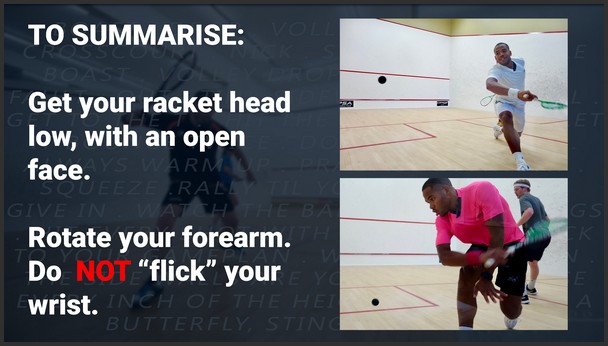PhotoCoaching: Back Corners – Backhand
Here are two photographs of a player using the correct backhand technique to get the ball out of the backhand back corner.
02 July 2022 / 3-Min Read / Translate
There is a Silent Squash video at the end of the article if you prefer to watch. There is also a forehand article for you to view.
Photograph 1
We are going to start with the backhand. To get the ball out of the back corners and straight along the wall…
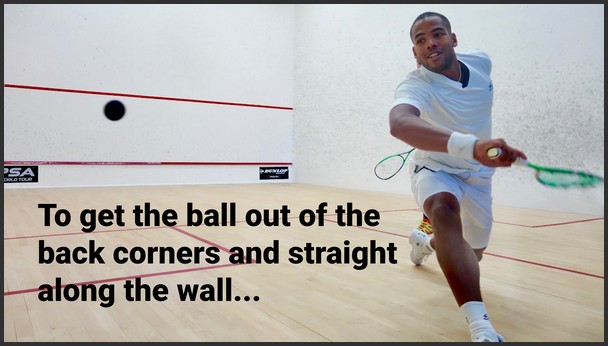
Your racket needs to come from a low position. Previous to this part of the swing, it can have been much higher, but at some point it MUST come low.
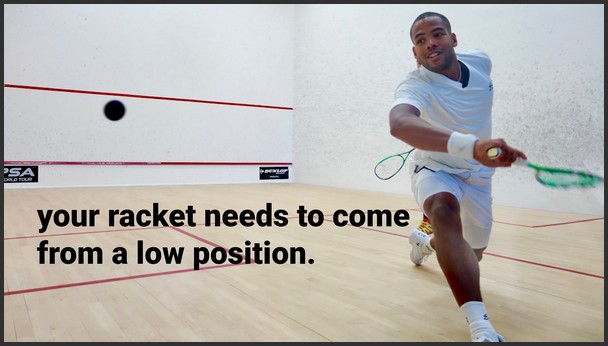
Notice that the side of the strings that will make contact with the ball are facing upwards. In fact, they are facing the ceiling and if we were able to pause time, you could place a ball on the strings and it would not fall off.
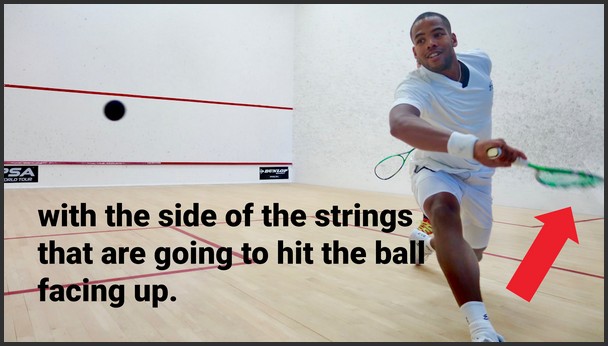
This racket position is called an "open face".
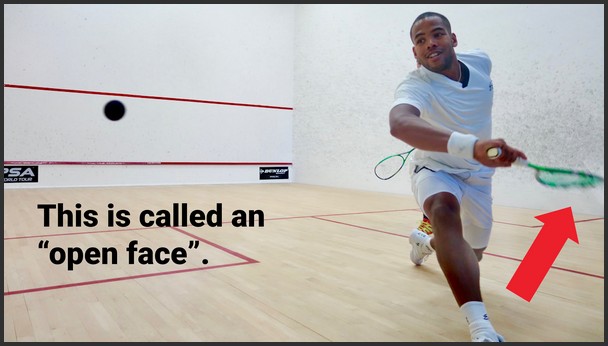
Notice that it is not "broken" or bent. You can't have an open racket face with a bent wrist.
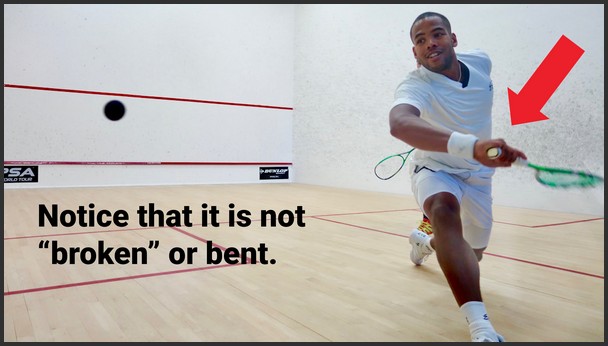
He is about to use his forearm to rotate his racket around and make contact with the ball.
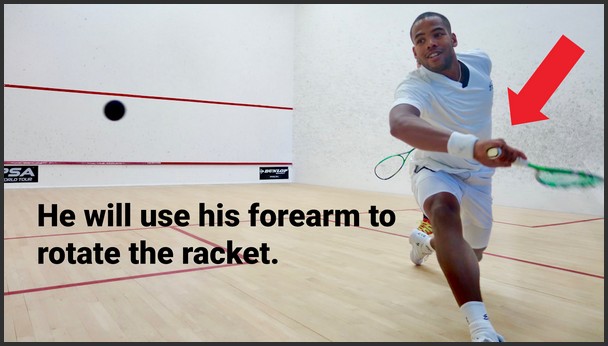
One last thing. Where is his left arm? It looks like he doesn't have one.
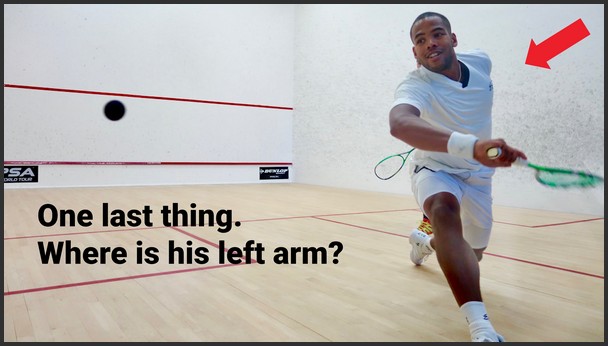
It is completely behind him. Almost certainly out-stretched. It is helping him balance himself. If you right arm is out stretched, then so should your left arm.
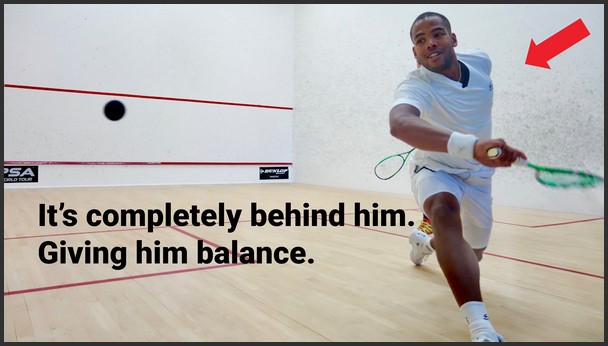
Not only is it helping him balance, it is completely out of the way of his swing.
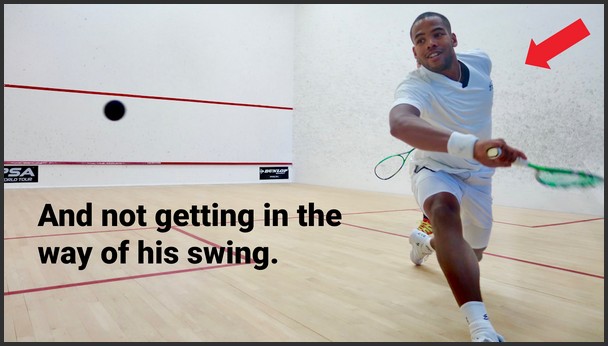
Photograph 2
Now let's look at the second photograph.
As you can see, the player is much closer to the ball. His feet are closer together
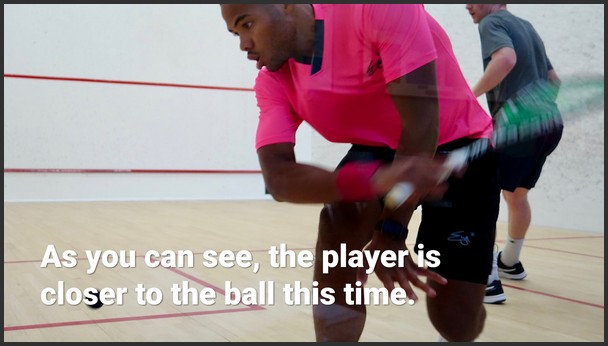
But the swing elements are still the same.
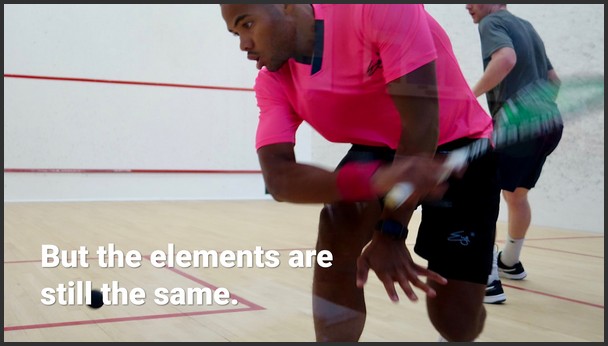
The racket has dropped to almost parallel to the floor. Again if we could stop time, there would be a point in the swing where we would almost certainly be able to place a ball on the strings and it would not fall off.
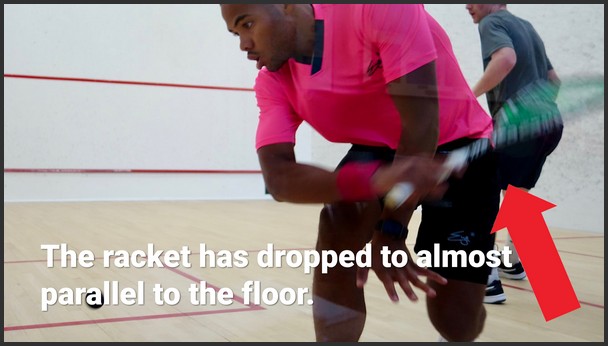
The wrist is cocked (almost 90 degrees) and the forearm is ready to rotate and bring the racket head towards the ball.
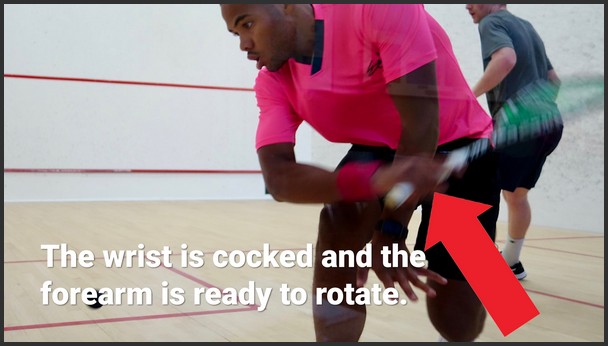
The left arm is not behind the player this time because he is not stretched out. But it is out of the way and under the right arm. Too often, I see the left arm limiting the range of movement of the racket.
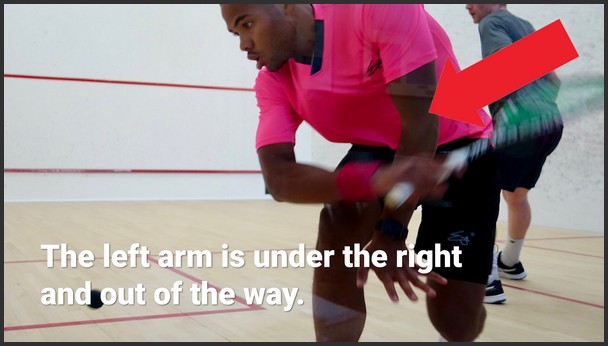
Backhand Summary
Get you racket head low and open.
Rotate your forearm. Do NOT "flick" your wrist.
